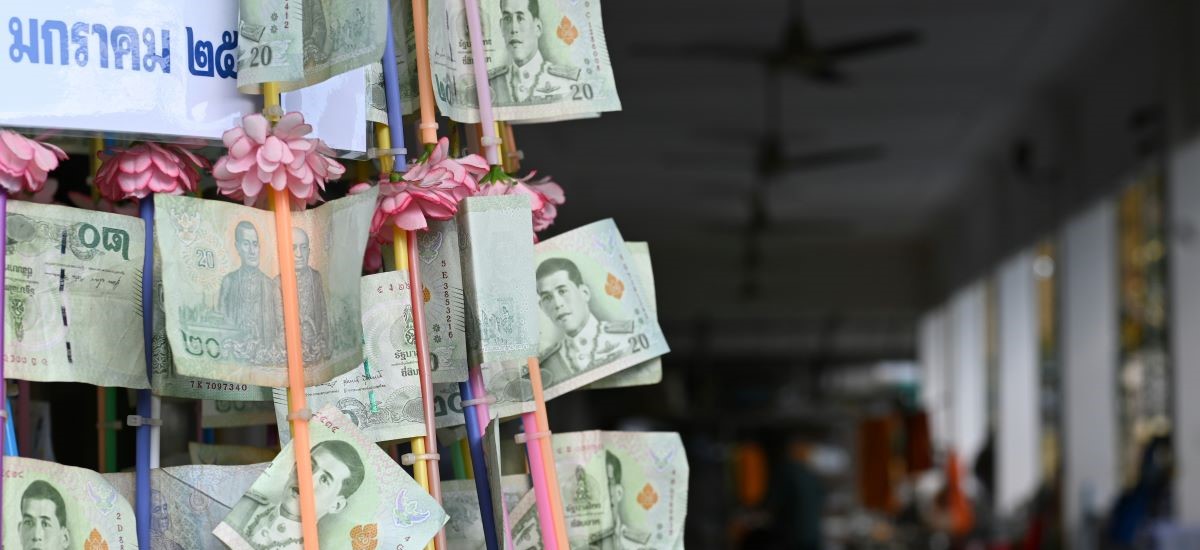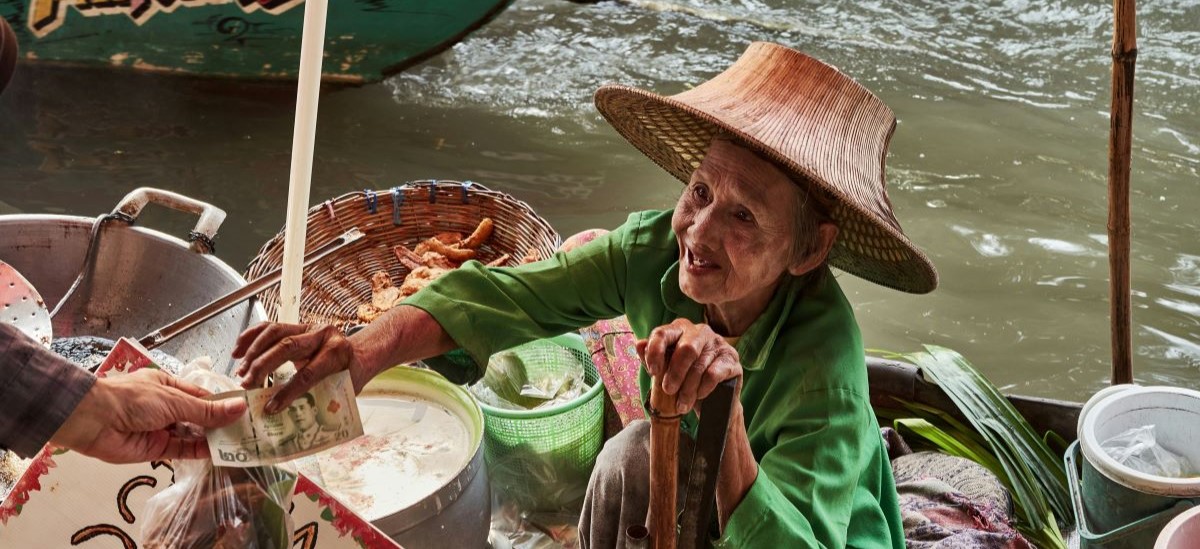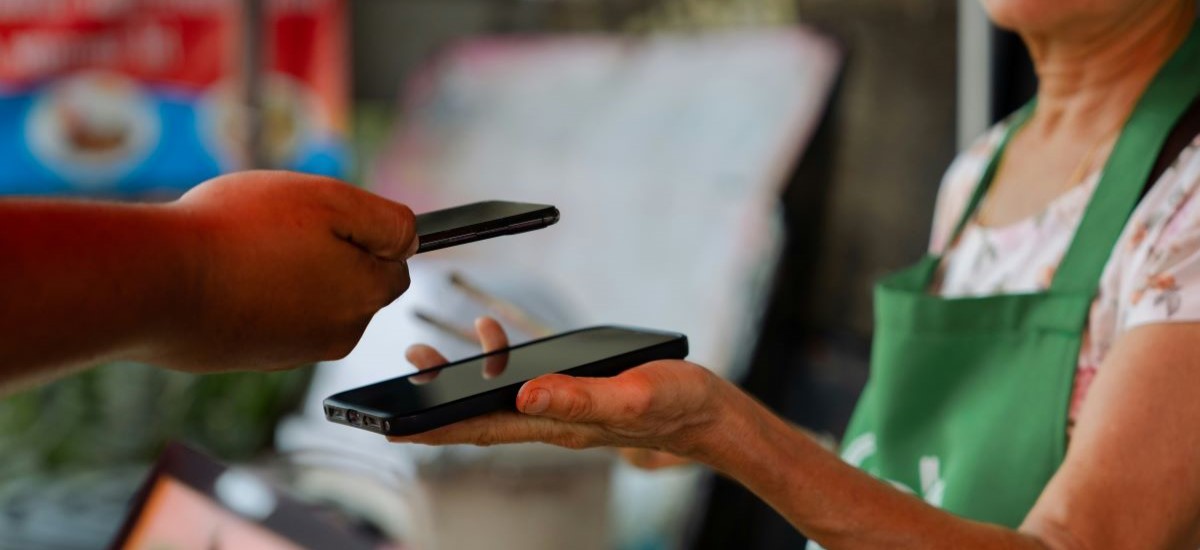Travel to Thailand from the UK: Must-know travel advice
Read our essential guide on travel to Thailand from the UK, featuring must-know travel advice on money, safety, visas, transport and more.

If Thailand is your next travel destination, you might be working out a travel budget. No matter how much you plan on spending, it’s handy to know the financial habits and preferences of Thai locals and whether cash or card in Thailand is a better option.
While people mostly use cash in Thailand, cards are also widely accepted in tourist areas. However, you might not be able to completely rely on your card even there. If you decide to visit smaller towns, cash will likely be the only option.
So which is the best way to pay? We’ll cover this and also show you a cost-effective way to handle your finances in Thailand.
Let’s get started.
Cash is widely used in Thailand and it’s still the number one method of paying. Although the number of cash payments is declining, they currently make up over 80 percent of all transactions.1
Large businesses, hotels and restaurants all accept international credit and debit cards. However, it’s advisable to carry some cash anyway, since cards can’t completely replace it. If you travel to smaller towns, you’ll notice that it might be hard to find places that support card payments.
There aren’t any strict rules when it comes to tipping in Thailand. They’re not required, but of course, are usually appreciated. Even though tipping is not originally part of Thai culture, the regular influx of tourists has introduced this new custom.2 Leaving some extra cash for service staff or taxi drivers is not a big expense for the average tourist.
Your behaviour towards Thai money is very important, since it can get you in some uncomfortable situations. Thai baht bills feature images of the Thai royal family and the locals treat them with much respect. It’s considered highly inappropriate to scribble on money or step on it, so make sure you always pick up money with your hand.3

Below are some common situations where you’ll be paying for things in Thailand. We’ve outlined whether you’ll be able to pay by card, in cash or both:
| Payment for... | Card 💳 | Cash 👛 |
|---|---|---|
| 🚕 Taxis | Sometimes (when booked via taxi booking apps)⁴ | Yes |
| 🛺 Tuk-tuks | Sometimes (when booked via tuk-tuk booking apps)⁵ | Yes |
| 🛒 Supermarkets | Yes | Yes |
| 🖼 Museums, galleries and temples | Usually | Yes, often preferred |
| 🚌 Public transport | Depends on transport | Yes |
| ☕ Cafés and restaurants | In larger cities, yes | Yes |
| 🛍 Markets | Sometimes (in larger cities) | Yes, often preferred |
You won’t have problems with ATMs in Thailand, as there are more than enough of them in tourist areas. You can also find them in shopping malls and convenience stores such as 7-Eleven.
Make sure you use official bank ATMs when withdrawing money. There are plenty of international and local banks in Thailand.
Top tip 💡: Always withdraw cash from ATMs in the local currency to avoid merchants adding on higher conversion fees. And remember that when using your card abroad, your bank or card provider may have limits on how much you can withdraw daily, so it’s best to check in advance!
You can use UK-issued cards in Thailand, including your debit card. Again, keep in mind that smaller businesses likely won’t accept any type of card payment.
As long as you go to a place that accepts cards, you can use your UK credit card in Thailand.

If you decide to go cashless, you might miss out on many authentic experiences in Thailand.
Trying the local street food and shopping at markets is impossible without some baht bills and coins on you. You can even have fun haggling and trying to secure a discount from local vendors.
Also, you might want to consider carrying cash for tipping service workers and hotel staff, so saving some money for them might make their day.
Even though the world is becoming more digital, technology can sometimes fail. Card terminals can sometimes stop working, so it's best to avoid any uncomfortable situations and carry cash. The locals are doing it, so why wouldn’t you?
The main reason to use cards in Thailand is security. Carrying and spending larger amounts of cash can be unsafe and make you a target for pickpockets. Also, cards can be sufficient if you plan on spending the entirety of your trip in a resort.
However, you should never completely rely on payment cards. It’s a good idea to have at least some extra cash on you, just in case.

Contactless payments are becoming increasingly popular in Thailand. You can even pay for public transport in Bangkok with contactless cards.6 Still, it’s best to ask whether a store or a restaurant you’re visiting supports this type of transaction.
Your Wise card is a good payment option for contactless transactions in Thailand. But, if you prefer leaving your cards at home, consider a virtual card with the same features.
Besides traditional credit and debit cards, other payment methods are also available in Thailand.
Thai QR payment services are becoming very popular among locals, but they’re not available to UK citizens. As of now, only tourists from certain Asian countries can use them. For example, Bangkok Bank’s PromptPay service can only be used by visitors from Vietnam, Indonesia, Malaysia, Singapore, Hong Kong, Laos and Cambodia.7
The Wise virtual card is a great digital option. It has all the benefits of a regular Wise card, but it exists in your phone only. You can freeze your Wise virtual card after every transaction, so top-notch security is guaranteed.
If you only have to pick one, cash is definitely the better choice. There aren’t any cashless or fully digital places in Thailand, so having a card is not essential at all. If you plan on trying street food, visiting local markets or little stores, it’s important that you have cash on you. That said, things are changing constantly, so always check before you travel.
| Looking for a Phuket travel guide? Click here to learn more about when the best time to visit Phuket is and find out how you can get the most out of THB conversions with Wise |
|---|
Want to spend like a local in 150+ countries, including Thailand, without worrying about exchange rates and hidden fees? The Wise card, from the money services provider Wise, might be just the thing you’re looking for.
The Wise card can be used for international payments, including accommodation costs and daily expenses. It automatically converts the currency at the mid-market exchange rate with only a small, transparent currency conversion fee*.
You can also use it to easily withdraw baht from the ATMs in Thailand.
To summarise, here are some of the most frequent questions about using cash or cards in Thailand.
You don’t need to get Thai baht in the UK, you can exchange pounds in Thailand. You can also use your Wise card at a Thai ATM and have it automatically convert the currency for you.
Krungsri Bank or Aeon Bank ATMs. Krungsri Bank has high withdrawal limits and Aeon Bank has low transaction fees.
On average, Thai ATMs charge £7 for withdrawals. Aeon Bank ATMs charge less, at around £3.50 per transaction.
You can use both. Cards will likely be accepted anywhere, but having some cash is always a good idea.
Quite the opposite. Even though cards are widely accepted, cash is still the primary payment method.
You usually won’t be able to use any other currency except for the Thai baht in Thailand.
Sources used for this article:
Sources last checked on date: 15-Apr-2024
*Please see terms of use and product availability for your region or visit Wise fees and pricing for the most up to date pricing and fee information.
This publication is provided for general information purposes and does not constitute legal, tax or other professional advice from Wise Payments Limited or its subsidiaries and its affiliates, and it is not intended as a substitute for obtaining advice from a financial advisor or any other professional.
We make no representations, warranties or guarantees, whether expressed or implied, that the content in the publication is accurate, complete or up to date.

Read our essential guide on travel to Thailand from the UK, featuring must-know travel advice on money, safety, visas, transport and more.

Can I use my Barclaycard in Thailand? Find out here in this handy guide, including fees for using your credit card in Thailand.

Read our guide on the best travel card for Thailand, including card comparisons and travel tips.

Learn how to claim your VAT refund in Thailand with our comprehensive guide, perfect for UK travellers. Discover the VAT refund process to maximise your savings

Can I use my Starling card in Thailand? Find out everything you need to know about using Starling Bank overseas in our handy guide.

Check out our in-depth guide on everything you need to know about buying a prepaid SIM card for Thailand, including different providers, pricing, and features.